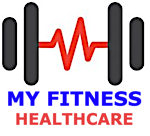One of the biggest roadblocks athletes experience on their journey to healthier eating is simply not having enough time in the day to prepare food.
Busy athletes and their families have tight schedules. They may eat at strange hours, on the road or in the bleachers. Sometimes they get so busy that they resort to fast food, energy bars or protein shakes for many meals.
These quick-and-easy solutions are acceptable occasionally, but the best fuel for athletes is fresh, energy-rich food. Many of which you won’t find at the gas station or drive-thru. To accommodate their busy schedules without sacrificing nutrition, athletes and their families need a strategy for preparing healthy food ahead of time. This is where a meal prep plan comes in!
By spending a couple of hours washing, cutting, cooking and portioning food on a slow day of the week, athletes and their families can stock up enough healthy, ready-to-eat food. This food will help sustain them through their busiest days. They’ll also save money by eating out less and improve their home cooking skills in the process.
Planning is the hardest part of meal prep.
It’s important to start small with realistic expectations. As your planning and cooking skills improve, you can prep more food or find ways to improve the meals you’ve been making. Whatever you do, make it fit to your schedule.
Decide which day works best for you
Many people choose to make all their food on one day (like Sunday, before the week starts), while others might choose two days (maybe half on Sunday and a new batch midweek). In any case, be ready to spend at least an hour, if not two or three, preparing your meals for the week.
Make sure you have plenty of storage containers.
Storage containers with lids are essential for easy storage and transportation of meals.
Choose which meals you want to prep
Some people just want to prepare lunches for the week, while others make breakfast, lunch, dinner and snacks. For busy athletes and their families, the best meals to prep ahead are the ones you most often skip or replace with a convenient option.
Leftovers are the best introduction to meal prep. If you’re already making dinner Sunday night, double the batch for a quick lunch or dinner later in the week. Otherwise, many people start their meal prep journey by preparing basics that can be combined into meals. Some examples include:
- Fresh fruits and vegetables – You’re much more likely to eat these healthy foods if they’re washed, cut and ready to eat. They can be eaten as is or added to salads, omelets, smoothies, stir fry and more.
- Roasted vegetables – Add these to an entrée for more flavor or enjoy them as is. Toss some sweet potatoes, butternut squash, carrots, broccoli, asparagus or any other vegetable in olive oil, salt, pepper and whatever else you like and roast them in the oven until tender.
- Cooked grains – Cook whole grains like brown rice and quinoa ahead of time for salads or easy grain bowls. Whole grain pasta can be cooked ahead and used as a base for meals as well.
- Proteins – Athletes need a steady supply of protein to aid in recovery. Cook chicken breasts, hard-boiled eggs, lean ground beef or salmon ahead and add them to salads, grain bowls or pasta.
Make a list and go shopping.
This may be the most dreaded part of meal prep for people who don’t go into the grocery store often, but it gets easier each week as you figure out your go-to meals and learn to navigate the aisles. Make a list of ingredients you need for specific recipes as well as a list of tried-and-true basics.
If you’re a beginner, don’t feel overwhelmed! It will get easier, and you can take satisfaction in knowing you’re making healthier decisions for your body and your budget. Good nutrition can make a significant impact on sports performance. If you give your body good fuel, you’ll feel better and perform better.
There are many other resources online that offer helpful tips, methods and even recipes for meal prep. Consult these on your way to becoming a meal-prep master:
For more information about what services are provided in your Sanford POWER Region, call Jason Dorman at (605) 312-7873 or email Jason.Dorman@sanfordhealth.org.

